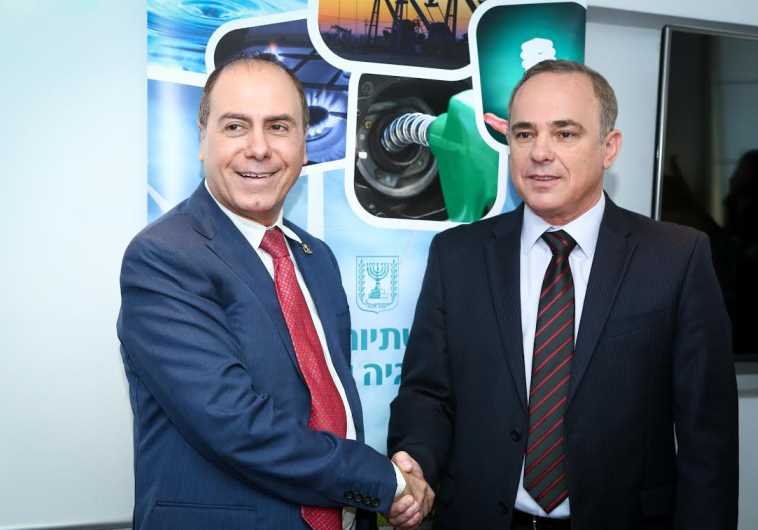Steinitz pledges commitment to developing Israel's gas sector
Likud member makes remarks at minister exchange ceremony with outgoing post-hold Silvan Shalom.
 Yuval Steinitz (right) and Silvan Shalom (photo credit: COURTESY NATIONAL INFRASTRUCTURES, ENERGY AND WATER MINISTERY)
Yuval Steinitz (right) and Silvan Shalom (photo credit: COURTESY NATIONAL INFRASTRUCTURES, ENERGY AND WATER MINISTERY)